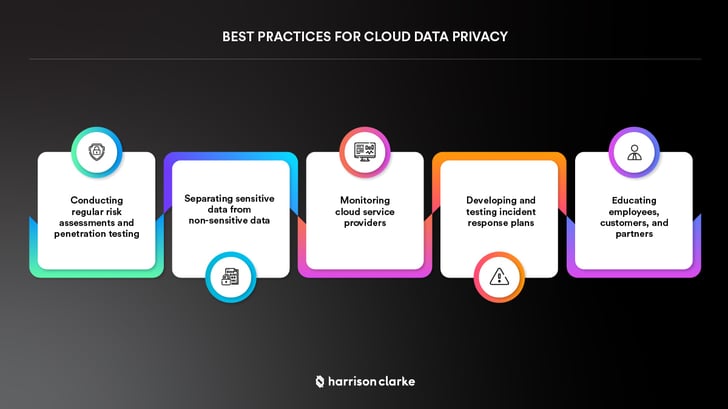The cloud has revolutionized how organizations store and process data, enabling them to scale infrastructure and software resources, increase efficiency, and reduce IT costs. However, these benefits have come with risk to data privacy and security that companies must address, especially as more countries are adopting regulations to protect customer information rights, including GDPR in the EU, CCPA in California, and LGPD in Brazil. Therefore, this article will provide insights into how companies can comply with data privacy regulations while still harnessing the full potentials of cloud computing.
Secure Configuration The Need for Data Privacy in the Cloud

Cloud service providers, such as AWS, Azure, and Google Cloud, offer various infrastructure and software-as-a-service solutions that enable businesses to process and store data with ease, convenience, and scalability. However, since the data is stored on remote servers that are accessed over the internet, it's vulnerable to cyber attacks, data breaches, insider threats, and unauthorized access. Therefore, companies must ensure that the cloud service provider has adequate security and privacy controls, such as network protection, access management, data encryption, monitoring, and auditing.
Compliance with Data Protection Regulations

Data protection regulations, such as GDPR and CCPA, have specific requirements that organizations must comply with, such as obtaining customer consent for data collection and processing, providing tools for data subjects to access and modify their data, erasing data when requested, and informing customers in case of a data breach. Failure to comply with these regulations can lead to legal liabilities, financial penalties, and reputational damage. Therefore, organizations must ensure that their cloud service providers can demonstrate compliance with these regulations and have data processing agreements that define roles, responsibilities, and obligations.
Protecting Data in the Cloud

One of the primary concerns of data privacy in the cloud is protecting data from unauthorized access, disclosure, or modification. For instance, cloud service providers can encrypt data at rest or in transit using industry-standard encryption algorithms, such as AES-256 or RSA. Additionally, organizations can adopt data anonymization techniques, such as hashing, tokenization, or pseudonymization, to ensure that personal data is not identifiable. Moreover, organizations can use privacy-enhancing technologies, such as differential privacy, to analyze data without compromising individual privacy.
Best Practices for Cloud Data Privacy

To achieve the best cloud data privacy practices, organizations must not only comply with regulations but also adopt various measures, such as:
• Conducting regular risk assessments and penetration testing to identify vulnerabilities and improve security controls.
• Separating sensitive data from non-sensitive data and applying access control policies and procedures.
• Monitoring cloud service providers for compliance, security, and privacy standards
• Developing and testing incident response plans to mitigate the impact of a data breach or cyber attack.
• Educating employees, customers, and partners on data privacy policies, controls, and best practices.
The cloud has transformed how businesses operate by offering agility, scalability, and efficiency. However, the cloud also poses unique challenges to data privacy and security that organizations must address to avoid legal liabilities, financial penalties, and reputational damage. Therefore, organizations must understand data protection regulations and adopt best practices for cloud data privacy, such as protecting data with encryption, anonymization, and privacy-enhancing techniques, and monitoring cloud service providers for compliance and security. Ultimately, the success of cloud computing hinges on ensuring data privacy and security, which requires a dedicated and ongoing effort.



